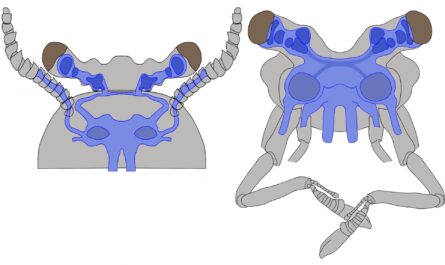In a groundbreaking study published in Nature Communications, researchers at Beth Israel Deaconess Medical Center (BIDMC) have shed new light on the key cellular processes involved in the progression of Parkinson’s disease (PD). Parkinson’s disease is a neurodegenerative disorder characterized by the gradual loss of dopamine-producing brain cells, leading to a multitude of motor and cognitive symptoms.
Led by senior author David K. Simon, MD, PhD, Director of the Parkinson’s Disease & Movement Disorders Center at BIDMC, the research team collaborated with scientists from the University of Cambridge and Mission Therapeutics to investigate the role of a specific enzyme in the protection and preservation of dopamine-producing neurons. The team conducted a series of experiments using a mouse model and found that inhibiting this enzyme effectively halted the progression of PD.
The study focused on the clearance of dysfunctional mitochondria, which are the organelles responsible for supplying energy to cells. It is believed that the death of dopamine-producing cells in Parkinson’s disease is associated with a malfunction in this process. The researchers honed in on an enzyme called USP30, which plays a significant role in the clearance of damaged mitochondria. By utilizing a knockout mouse model lacking the gene that produces USP30, the team observed a remarkable protection of dopamine-producing neurons, the increased clearance of dysfunctional mitochondria, and a corresponding absence of Parkinson’s-like motor symptoms.
To further validate their findings, the researchers utilized a proprietary molecule developed by Mission Therapeutics to block the action of the USP30 enzyme in dopamine-producing neurons. This approach mirrored the observations made in the knockout mouse model, providing additional evidence of the enzyme’s role in the progression of PD.
According to Dr. Simon, the combined results of the knockout studies and the use of the proprietary molecule offer strong support for the potential disease-modifying effects of reducing USP30. The findings pave the way for the development of novel therapeutics aimed at targeting this enzyme to slow down or even prevent the progression of Parkinson’s disease.
The study’s co-authors included researchers from various institutions, namely Simona C. Eleuteri of BIDMC, Yu Sun and Gabriel Balmus of the University of Cambridge, Andrew C. Pearce, Mark Kemp, Christopher A. Luckhurst, Rachel Williams, Ross Mills, Sarah Almond, Laura Burzynski, Nóra M. Márkus, Stephen P. Jackson, and Paul W. Thompson of Mission Therapeutics Ltd., Christopher J. Lelliott, Natasha A. Karp, and David J. Adams of the Wellcome Sanger Institute, and Jin-Feng Zhao and Ian G. Ganley of the MRC Protein Phosphorylation and Ubiquitylation Unit at the University of Dundee.
This groundbreaking research holds significant implications for the future of Parkinson’s disease treatment. By identifying and targeting specific cellular processes involved in the progression of the disease, researchers are one step closer to developing innovative therapies that may have disease-modifying effects. With further testing and development, these findings may bring hope to the millions of individuals affected by Parkinson’s disease worldwide.
*Note:
1. Source: Coherent Market Insights, Public sources, Desk research
2. We have leveraged AI tools to mine information and compile it



